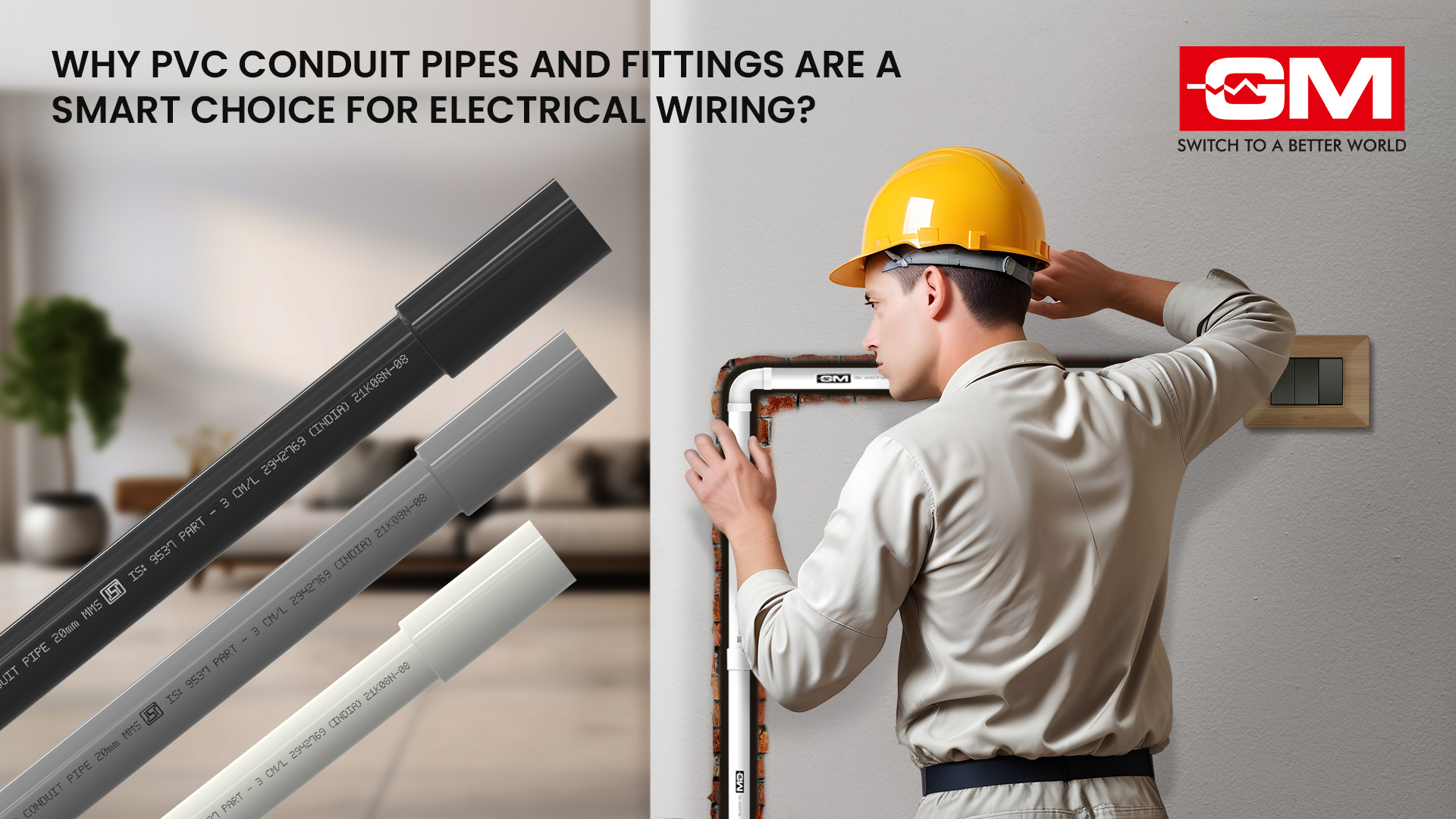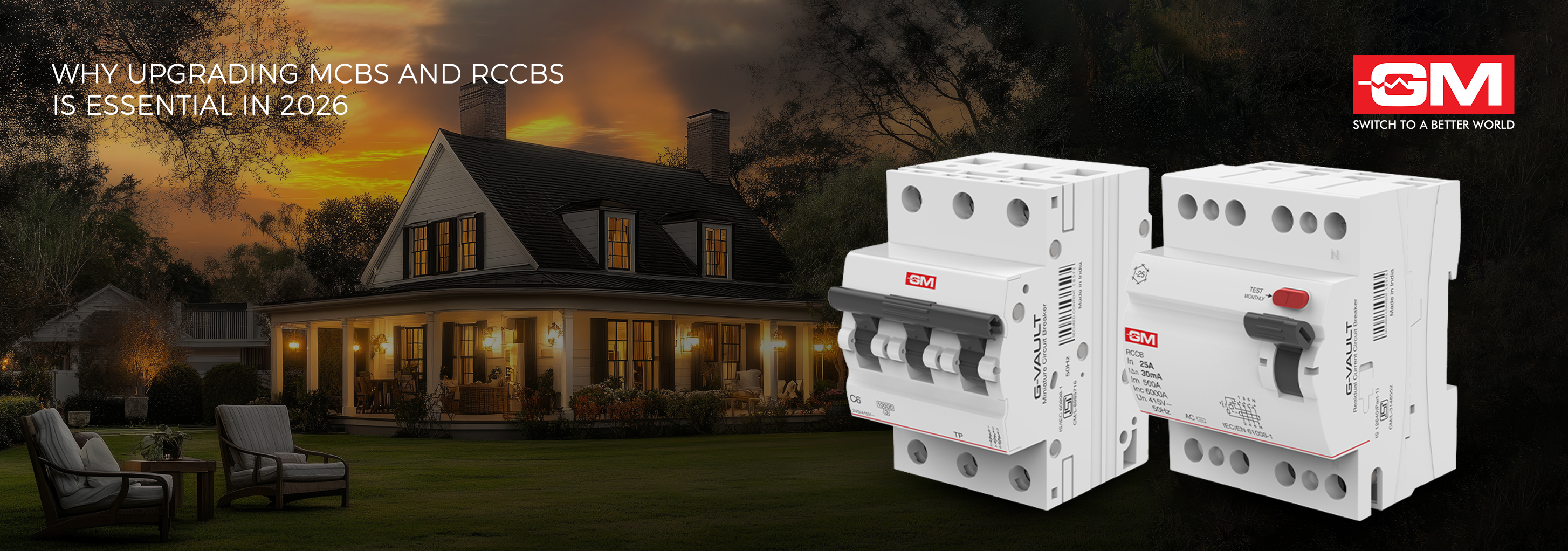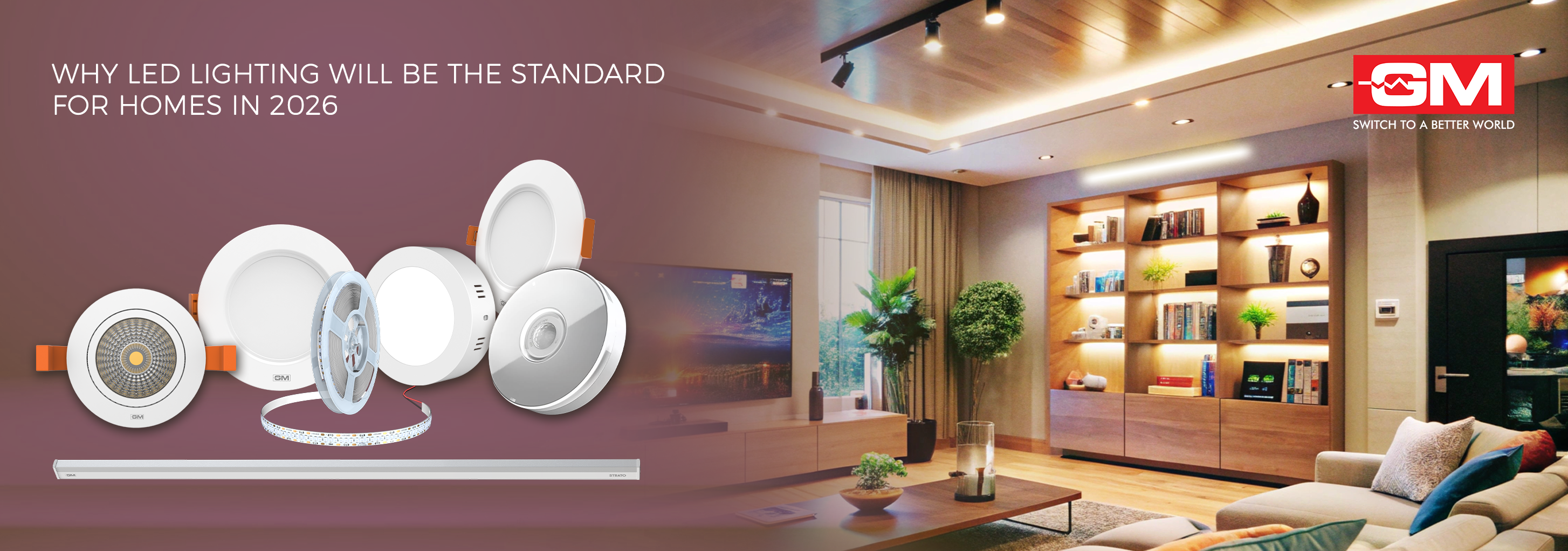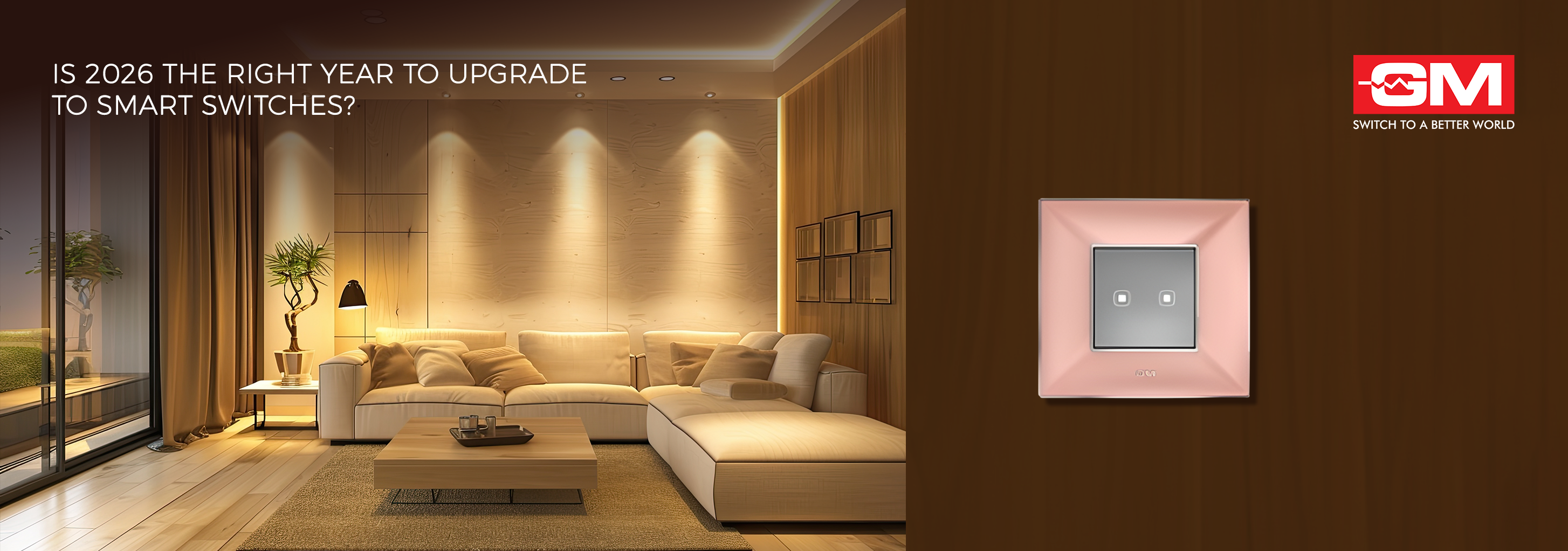Blog
Why PVC Conduit Pipes and Fittings Are a Smart Choice for Electric Wiring
Updated on May 2024

In our modern society, the increasing demand for electricity highlights the importance of ensuring safety at every stage of electrical installation. This is when conduit pipes emerge as a vital solution, offering optimum safety and efficient electrical wiring. Among many, PVC conduit pipes play a significant role in safeguarding electrical wires and promoting their organised routing within structures. If you are not already familiar with the concept of PVC electrical conduit pipes, you have landed in the right place. We have got you covered with reasons that make PVC conduit pipes and fittings stand out as a smart choice for your electrical wiring needs.
What is a PVC Electrical Conduit Pipe?
PVC stands for polyvinyl chloride, a durable synthetic resin renowned for its chemical resistance. Since 1932, it has been widely used to safeguard electrical wiring in homes, telecommunications, and utilities. Frequently used, a PVC electrical conduit is a rigid white tube that is required for threading and protecting wires from corrosion and leaks. Additionally, it provides advanced protection against electric shocks and hazards which further makes it suitable for a wide range of applications. Moreover, PVC serves as a conduit that safely routes electrical wires to connect different components or locations. When designing a wiring system, it is crucial to use PVC conduit to protect wires of varying thicknesses. Therefore, it comes in varied size specifications to adapt to different arrangements.
Applications of PVC Conduit Pipes for Various Electrical Needs.
Now that you have a basic understanding of PVC electrical pipes, you should learn about its applications. PVC conduit pipes are widely utilised in high-rise buildings, hotels, hospitals, retail centres, parking lots, etc. They play a vital role in protecting electrical wires and cables from environmental exposure and physical damage. PVC electrical conduit pipes are also widely utilised in underground and outdoor applications due to their resilience to corrosion and UV radiation. While PVC is not the only material used for electrical conduit, it stands out due to the benefits it offers. Read on to find out why PVC conduit pipes are an excellent alternative for your electrical installation project.
What Are the Benefits of PVC Conduit Pipes?
PVC conduit pipes work perfectly in concrete and wet locations and are commonly available in varied sizes, making them a perfect choice for different applications. However, there are several more benefits to PVC conduit fittings that you must know about.
- Ease of Installation: PVC conduit’s lightweight design allows for easy bending, cutting, and quick connections, making the installation process significantly faster and more efficient compared to its heavier alternatives like metal conduit.
- Durability: PVC conduit is exceptionally resistant to moisture, chemicals, and environmental elements, which can degrade other materials. This durability allows PVC conduit to withstand harsh conditions effectively while ensuring a longer lifespan compared to alternative materials like metal.
- Cost-Effectiveness: PVC conduit, when compared to its metal alternatives, proves to be less expensive. It helps you save on material costs, labour costs and time, thus, doing what it is supposed to do efficiently and without burning a hole in your pocket.
- Corrosion Resistance: Unlike its metal alternative, PVC conduit is resistant to corrosion and rust which makes it an ideal choice for applications in damp or corrosive environments.
- Versatility: PVC conduit proves to be a versatile choice, having applications in residential, commercial, and industrial segments. Additionally, it can be customised to cater to various electrical systems and configurations, ensuring that it is flexible and adaptable to your requirements.
What Are PVC Conduit Fittings and Their Functions?
To change the orientation of PVC conduit, you must make use of connectors to attach it to boxes and enclosures of different sizes. Straps and clips provide additional support as needed. These components, called PVC conduit fittings, function to connect conduit sections and securely attach them to boxes, enclosures, or electrical devices while also meeting regulatory size and shape requirements.
The Different Types of PVC Conduit Fittings
To ensure a well-built and protected electrical conduit circuit, you need different types of electrical fittings. Here are some PVC conduit fittings you must know about:
- Conduit bodies and junction boxes
- Bends and elbows
- Coupling
- Bushings and locknuts
- Unions
- Reducers
- Straps and clips
GM Modular Pipes and Fittings: A Trusted Choice for Your Electrical Conduit Needs
Now that you know what makes PVC conduit pipes and fittings a smart choice for electric wiring, explore the GM Modular PVC Pipes & Fittings catalogue and make a sound decision. With a thorough understanding of modern-day safety, GM Modular pipes and fittings are made to last a lifetime and safeguard your home efficiently. So, wait no longer to bring home safety and invest in GM Modular pipes and fittings now!
Related Blogs

Why Upgrading MCBs and RCCBs Is Essential in 2026
Picture this: you're hosting a family dinner, the air conditioner is running, the induction cooktop is on full blast, and someone plugs in the mixer grinder. Suddenly, everything goes dark. If this scenario feels familiar, your home's electrical prot
Read More
Why LED Lighting Will Be the Standard for Homes in 2026
Modern residential illumination in 2026 is defined by the strategic integration of LED strip lights. By providing a soft, indirect glow that avoids the harshness of traditional tubes, these solutions allow Indian homeowners to achieve a sophisticated
Read More
Is 2026 the Right Year to Upgrade to Smart Switches?
Picture this: you are already running late for work, and halfway to the office, a nagging thought strikes—did you turn off the bedroom AC? Now imagine resolving that worry with a single tap on your phone. This is not a distant dream anymore. Sm
Read More
Home Automation Trends to Watch in 2026
Imagine walking into your home after a long day. The lights adjust to your preferred evening setting, the fan speeds up to counter the summer heat, and your favourite playlist begins softly in the background. No buttons pressed, no commands spoken. T
Read More